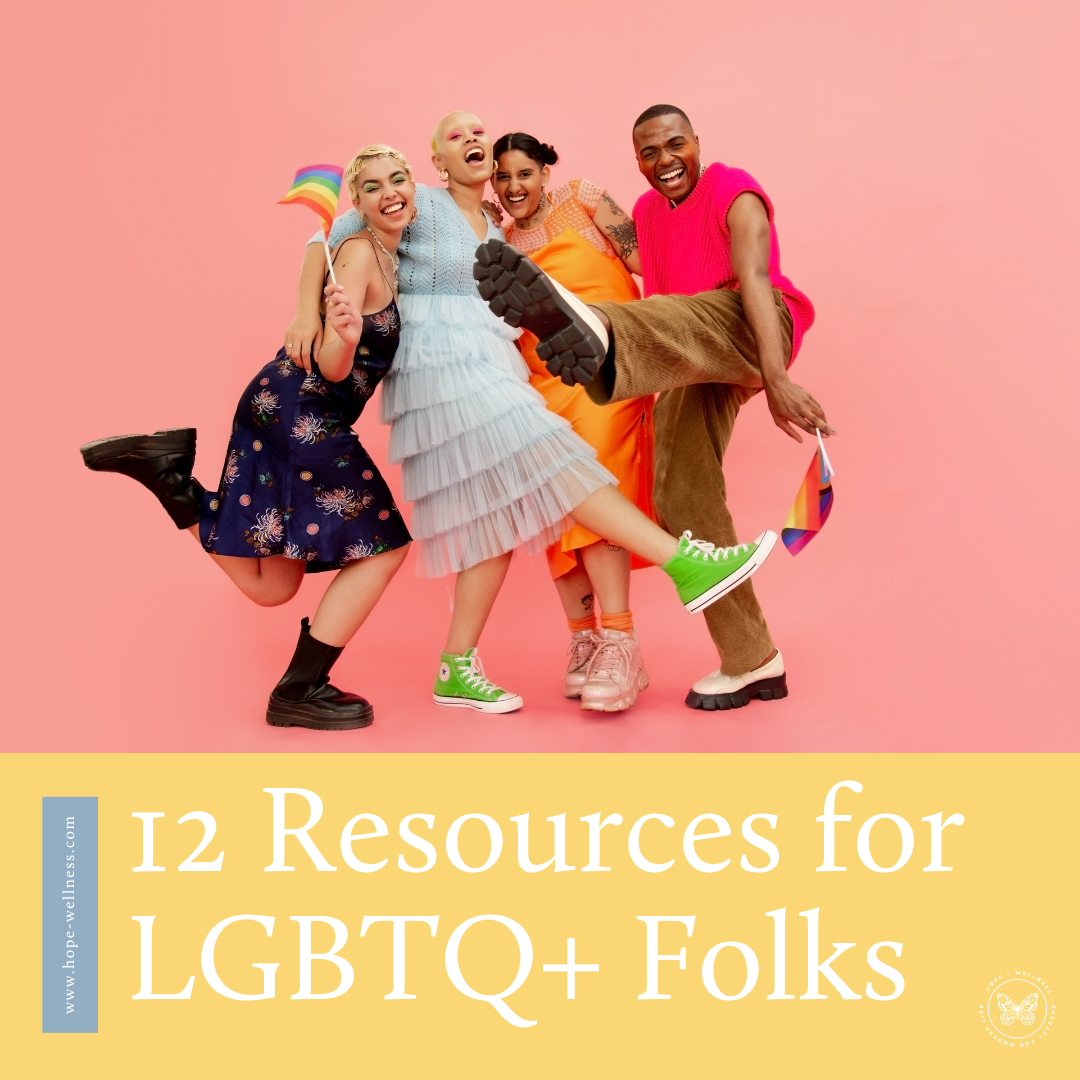
Hope +Wellness Blog
little snippets of advice for everyday challenges many people share

Overcoming Your Inner Critic aka Impostor Syndrome
Hey, I have a question for you! Have you ever walked into a room, a job, a project, or even a friendship/relationship and thought, “What am I doing here?”; “You can’t do this!”; “I am not good enough” “Do they even like me?”. Or maybe you’ve achieved something meaningful, yet you can’t let go of the fear or anxiety that you fooled everyone. You’re just waiting for someone to come up to you and say, “You made a mistake. You’re not supposed to be here.” That my friends, right there is impostor syndrome! And if you can relate to this, just know you’re in good company.

8 ADHD Time Management Hacks That Actually Work
Time management can be tricky when you have ADHD. Try these 8 time management hacks to make your life easier!

Top Five Realizations I Needed to Have to Improve My Life and Relationships
Here are the top five realizations Lauren Maxwell, LPC, NCC learned over time and is sharing to improve help improve your life and relationships!

You Don’t Have to Have It All Figured Out: Therapy as a Tool for Growth, not Just Crisis
Seeking therapy for the first time can feel intimidating especially if you’re the “strong one,” the fixer, or the person everyone else turns to. Maybe you’ve been taught that therapy is only for moments of crisis, or perhaps you grew up in a culture where emotional struggles were minimized, or met with silence. As a first-generation Latina and mental health professional, I understand how deeply those messages can run. But I want you to know this: therapy isn’t just for when things fall apart. It’s also for when you’re trying to hold it all together.

Embracing Neurodiversity in Pediatric Practice
Dr. Kayleigh Hale provides a compassionate guide for pediatricians on how to support neurodivergent children using a strengths-based, inclusive approach. This article covers sensory needs, diagnostic clarity, and the value of affirming language to reduce stigma and help children feel seen and supported.

12 Resources for LGBTQ+ Folks
Since we’re nearing the end of Pride month, we thought a resource roundup to help LGBTQ folks not just for Pride month, but for all the months after that was in order. Below you can find 8 blogs from our site, as well as a short roundup of resources beyond Hope+Wellness.

The Gift of the Present Moment
Bennett Crawford, LCSW shares an article helping us connect with the present moment and recognizing it for the gift it is. We invite you to check it out and learn six practices you can use to access the present moment.

8 Tips for Maintaining Mental Health During the Summer
Sometimes summer is so busy it’s hard to stay on top of your mental health. Explore our tips to maintain your mental health this summer.

Living with Intention: How Values-Based Action Supports Healing
Self-compassion is a powerful tool for emotional resilience, especially during times of stress, self-doubt, or transition. In this article, Caroline Freedenberg, LICSW, explores how values-based action and self-compassion can support healing, reduce perfectionism, and help you reconnect with what matters most. We hope you’ll take a few minutes to read and reflect :)

Everyday Strategies for Thriving with ADHD
ADHD is a common neurodevelopmental condition that might affect you or someone you know. For some tips on attention strategies and to gain a better understanding of ADHD in general, we encourage you to check out this blog post :)
Hope+Wellness is a mental health practice specializing in the treatment of depression, mood, stress, and anxiety in kids, teens, and adults. This is a blog about living well and finding meaning and purpose in the face of difficult challenges. This is a blog about finding hope.
Archive
- ACT
- ADHD
- Acceptance
- Anxiety
- Authenticity
- Belonging
- Bipolar
- CBT
- Calming
- Change
- Chronic Illness
- Chronic Pain
- Communication
- Community
- Coping Skills
- DBT
- Dating
- Depression
- EMDR
- Emotions
- Entrepreneurs
- Friendship
- Gratitude
- Grief
- Health Psychology
- Hope
- Inspiration
- Intimacy
- Intuition
- Joy
- Letting Go
- Love
- Manic Depression
- Mindfulness
- Miscarriage
- OCD
- Parenting
- Personal Growth
- Positive Vibes
- Quotes
- Relationships
- Resources
- Self-Compassion
- Self-Reflection
- Services
- Sleep
- Spirituality
- Stress Management
- Stress Relief
- Suffering